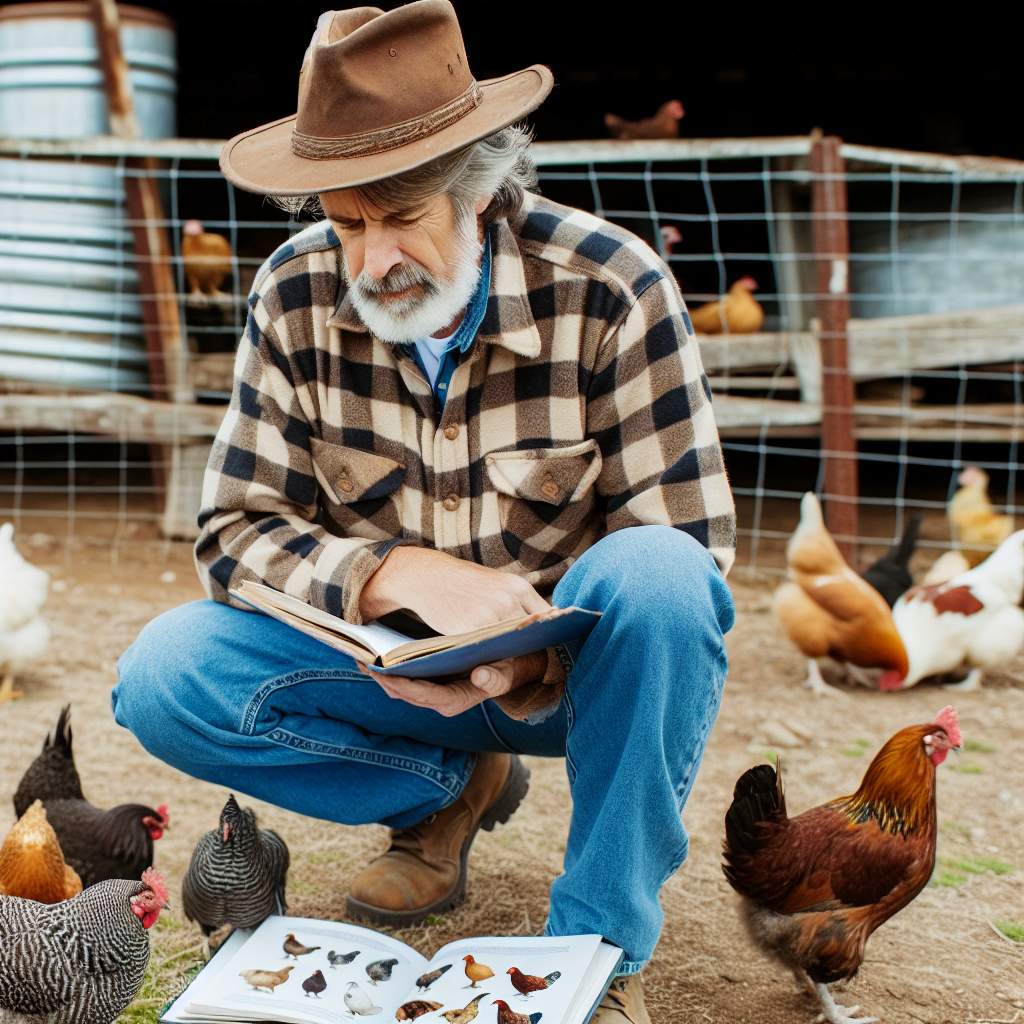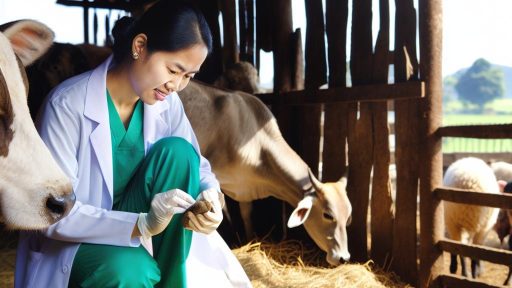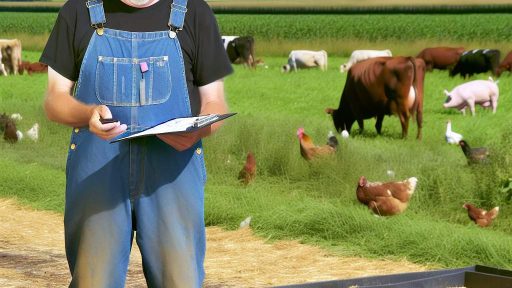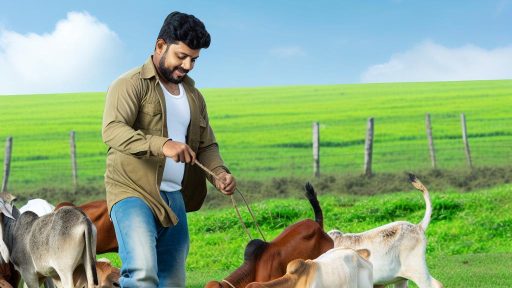Understanding Heritage Chicken Breeds
Definition of Heritage Breeds
Heritage chicken breeds refer to traditional breeds that have been preserved through generations.
They are distinct from commercial broilers and layers often used in modern farming.
Heritage breeds exhibit a range of traits that contribute to their hardiness and adaptability.
Characteristics of Heritage Breeds
These chickens typically mature slower than their commercial counterparts.
However, they develop strong immune systems, making them more resilient to diseases.
Additionally, heritage breeds are known for their ability to thrive in various climates.
They possess unique reproductive traits, often leading to better egg production efficiency.
Benefits of Choosing Heritage Breeds
Farmers benefit from raising heritage breeds in several ways.
- They contribute to biodiversity within poultry farming.
- Many heritage breeds produce flavorful and high-quality meat.
- They often have a longer lifespan, leading to more sustainable farming practices.
Importance of Heritage Breeds in Sustainable Farming
Understanding the characteristics of heritage chicken breeds helps farmers make informed decisions.
They play a vital role in creating a robust and sustainable poultry farm operation.
Benefits of Choosing Heritage Breeds for Poultry Farming
Genetic Diversity
Heritage chicken breeds offer significant genetic diversity.
This diversity strengthens the overall health of your flock.
Moreover, it helps reduce vulnerability to diseases.
Consequently, farmers enjoy a more resilient poultry operation.
Flavor and Quality of Eggs and Meat
Another advantage is the superior flavor of heritage chicken products.
Transform Your Agribusiness
Unlock your farm's potential with expert advice tailored to your needs. Get actionable steps that drive real results.
Get StartedCustomers often prefer the rich taste of heritage eggs and meat.
Therefore, farmers can sometimes charge a premium price.
This can elevate profit margins significantly.
Adaptability to Environment
Heritage breeds are typically hardy and well-adapted to local climates.
They can thrive in varying conditions with minimal input.
In addition, they often exhibit foraging abilities that enhance their diet.
This can lead to lower feed costs and improved sustainability.
Preservation of Tradition
Choosing heritage breeds supports the preservation of traditional farming practices.
Farmers contribute to the survival of unique breeds and genetic traits.
Moreover, this maintains cultural heritage and agricultural history.
Such initiatives promote biodiversity within the farming community.
Community and Market Demand
Heritage breeds often attract a niche market of consumers.
People interested in sustainable and ethical farming support these choices.
This creates stronger community ties and loyalty among customers.
As a result, businesses can benefit from local networks and outreach opportunities.
Factors to Consider When Selecting Heritage Chicken Breeds
Purpose of the Poultry Operation
Define the main goals of your poultry operation.
Decide if you focus on egg production or meat production.
Additionally, consider whether you aim to sell birds or products directly.
Climate and Environment
Assess your local climate and its impact on chicken health.
Some breeds tolerate heat better than others.
Similarly, consider breeds that can withstand cold conditions.
Breed Characteristics
Research the specific traits of various breeds.
Look at growth rates, egg-laying capabilities, and temperament.
Each breed offers unique qualities that may suit your needs.
Showcase Your Farming Business
Publish your professional farming services profile on our blog for a one-time fee of $200 and reach a dedicated audience of farmers and agribusiness owners.
Publish Your ProfileHardiness and Disease Resistance
Select breeds known for their hardiness and disease resistance.
Heritage breeds often boast better immunity than commercial ones.
This aspect can lead to lower care costs and healthier flocks.
Production Costs
Calculate the cost of feed, housing, and healthcare for different breeds.
Evaluate how breed choice impacts your overall expenses.
Cost-effective breeds can maximize farm profits over time.
Market Demand and Trends
Analyze the local market for heritage chicken breeds.
Identify which breeds are popular among consumers.
Additionally, monitor trends for organic or free-range products.
Personal Preference and Experience
Consider your personal preferences for breed color and size.
Your experience level can also influence breed selection.
Opt for easier-to-manage breeds if you are a beginner.
Find Out More: Poultry Management for Controlling Parasites
Comparative Analysis: Heritage Breeds vs. Commercial Breeds
Definitions of Heritage and Commercial Breeds
Heritage chicken breeds represent a traditional breeding approach.
These breeds have been raised for generations, maintaining unique traits.
Conversely, commercial breeds focus on maximizing production efficiency.
They are often bred for quick growth and high egg production.
Genetic Diversity and Resilience
Heritage breeds exhibit greater genetic diversity than commercial breeds.
This diversity contributes to their resilience against diseases.
Moreover, heritage birds adapt better to varying environmental conditions.
On the other hand, commercial breeds may suffer from genetic uniformity.
This can lead to vulnerability during disease outbreaks.
Growth Rates and Production Efficiency
Commercial breeds are known for their fast growth rates.
This efficiency helps meet consumer demand quickly.
However, heritage breeds grow at a slower pace.
Yet, they often yield tastier and more flavorful meat.
Additionally, the quality of eggs from heritage breeds is often superior.
Feed Efficiency and Nutritional Value
Commercial breeds require more feed to achieve optimal growth.
This often results in higher feed costs for farmers.
In contrast, heritage breeds utilize feed more efficiently.
They thrive on a varied diet, enhancing their nutritional value.
Thus, heritage chicks often yield healthier adults.
Market Demand and Consumer Preferences
Consumer preferences have shifted towards sustainable practices.
Many customers favor hormone-free, pasture-raised poultry.
Heritage breeds satisfy this demand effectively.
They often fetch a higher price on the market due to their quality.
Commercial breeds, while efficient, may struggle in niche markets.
Long-Term Sustainability and Farming Impact
Heritage breeds promote long-term agricultural sustainability.
They help preserve biodiversity, critical for future food security.
Moreover, their hardiness supports local farming ecosystems.
Showcase Your Farming Business
Publish your professional farming services profile on our blog for a one-time fee of $200 and reach a dedicated audience of farmers and agribusiness owners.
Publish Your ProfileIn contrast, reliance on commercial breeds can lead to monoculture.
This approach may harm soils and the overall farming environment.
Gain More Insights: Innovative Queen Bee Breeding Methods For Robust Colonies In U.S. Agriculture
Top Ten Heritage Chicken Breeds for Sustainable Farming
Why Choose Heritage Breeds?
Heritage chicken breeds offer diverse benefits for poultry farmers.
They thrive in various environments and conditions.
Additionally, they often require less intensive care than hybrids.
Barred Plymouth Rock
This breed is known for its striking striped feathers.
Barred Plymouth Rocks are friendly and easy to handle.
They are also good layers of brown eggs.
Rhode Island Red
Rhode Island Reds are hardy and versatile birds.
They adapt well to various climates and conditions.
Moreover, they are prolific producers of brown eggs.
Leghorn
Leghorns are known for their excellent egg production.
These birds can lay up to 300 eggs per year.
Additionally, they are active foragers, making them great for free-range systems.
Orpington
Orpingtons are known for their calm and friendly demeanor.
They are excellent layers and produce large brown eggs.
Furthermore, they have a good meat-to-feather ratio.
Australorp
Australorps are a breed developed in Australia from Black Orpingtons.
They are known for their excellent egg-laying capabilities.
Additionally, they are friendly and good for family farms.
Wyandotte
Wyandottes are dual-purpose birds for both meat and eggs.
They feature beautiful feather patterns and a calm temperament.
Moreover, they are hardy and perform well in cold weather.
Silkie
Silkies are known for their unique fluffy feathers.
These birds are often kept for their ornamental value.
Additionally, they are friendly, making them great pets.
Buff Orpington
Buff Orpingtons are known for their gentle nature and striking color.
They lay large brown eggs consistently.
Furthermore, they adapt well to confinement and free-range situations.
Speckled Sussex
Speckled Sussex chickens have beautiful speckled feathers.
They are friendly and curious birds.
They lay medium-sized brown eggs and are good foragers.
New Hampshire Red
New Hampshire Reds are a variation of Rhode Island Reds.
They are known for their rapid growth and egg-laying abilities.
Additionally, they adapt well to different management practices.
Benefits of Heritage Breeds
Choosing heritage breeds contributes to genetic diversity.
These breeds provide natural resilience against diseases.
Moreover, they often have better foraging instincts than hybrids.
Exploring Sustainable Practices
Integrating heritage breeds into farming enhances sustainability.
Showcase Your Farming Business
Publish your professional farming services profile on our blog for a one-time fee of $200 and reach a dedicated audience of farmers and agribusiness owners.
Publish Your ProfileFarmers can practice rotational grazing with these birds.
Additionally, they contribute to soil health through natural behaviors.
Find Out More: Understanding the Role of Sensors in Precision Livestock Farming
Breeding Practices and Care for Heritage Chicken Breeds
Understanding Heritage Breeds
Heritage chicken breeds are vital for sustainable poultry farming.
They maintain genetic diversity and support local ecosystems.
Moreover, these breeds often exhibit hardiness against diseases.
Farmers appreciate their adaptability to various climates.
Selecting Heritage Breeds
Choosing the right heritage breed enhances flock resilience.
Consider breeds like Rhode Island Reds and Plymouth Rocks.
These breeds are known for their robust health and productivity.
Research local conditions to determine the best fit for your farm.
Breeding Techniques
Effective breeding practices foster strong heritage lines.
Use selective breeding to promote desired traits in your flock.
Avoid inbreeding to maintain genetic variability.
Regularly evaluate the health and performance of breeding stock.
Care and Daily Management
Proper care is essential for the well-being of heritage chickens.
Provide adequate shelter to protect them from harsh weather.
Ensure access to clean water and high-quality feed daily.
Regular health checks can prevent potential diseases.
Nutrition Needs
Heritage chickens have distinct nutritional requirements.
Offer a balanced diet rich in proteins and vitamins.
Supplement their feed with grains and fresh vegetables.
Monitor their growth to adjust feeding strategies as needed.
Health and Wellness
Regular vet check-ups help maintain flock health.
Implement a vaccination program to prevent common diseases.
Provide a clean environment to reduce stress and illness.
Observe chickens daily for signs of sickness or distress.
Integrating Heritage Breeds into Farming Systems
Integrating heritage breeds supports diverse farming practices.
They can contribute to agroecological farming methods.
Utilize their foraging behavior to enhance soil health.
This practice reduces feed costs and promotes natural behaviors.
Explore Further: Essential Housing Requirements for Comfortable Swine Rearing

Economic Considerations
Cost Analysis of Heritage Breeds
Heritage chicken breeds often come with higher initial costs.
Purchasing these breeds can require a larger investment upfront.
Additionally, feed and care for these chickens may have varying expenses.
However, some farmers find this investment worthwhile over time.
Heritage breeds usually adapt well to diverse environments.
This can lead to lower mortality rates and healthier flocks.
Consequently, the long-term savings often compensate for the initial investment.
Benefits of Heritage Breeds
Heritage breeds typically offer higher nutritional value in their eggs.
Showcase Your Farming Business
Publish your professional farming services profile on our blog for a one-time fee of $200 and reach a dedicated audience of farmers and agribusiness owners.
Publish Your ProfileThese eggs often have richer flavors and superior textures.
Furthermore, preservation of genetic diversity is key for sustainable farming.
Heritage breeds can be more resilient against diseases and environmental stressors.
This resilience translates to fewer losses, increasing profitability.
Many consumers value the ethical considerations of heritage farming.
They are often willing to pay a premium for these products.
This demand can improve farm revenue over time.
Assessing Breeding Programs
Investing in breeding programs may enhance farm productivity.
By selecting for traits like growth rate or egg production, farms can increase outputs.
Furthermore, continuous improvement can lead to even more robust operations.
Partnerships with local universities may provide additional resources.
These partnerships can aid in research and development of better practices.
Utilizing veterinary services is crucial for health monitoring.
Overall, effective breeding plans can lead to enhanced economic sustainability.
Case Studies: Successful Poultry Farms Using Heritage Breeds
Johanna’s Family Farm
Johanna’s Family Farm in Pennsylvania emphasizes sustainability.
They focus on raising heritage breeds like the Rhode Island Red.
This breed provides excellent egg production and hardiness.
Consequently, Johanna reported lower feed costs due to efficient feeding habits.
The farm’s commitment to humane treatment attracts many customers.
Furthermore, they engage in local farmer markets, boosting sales.
Green Pastures Poultry
Green Pastures Poultry has been operational in Oregon for over a decade.
The farm raises Delaware chickens known for their robust growth.
These chickens thrive in varied climates and conditions.
Notably, they have higher disease resistance than commercial breeds.
This resilience results in fewer veterinary costs for the farm.
Moreover, Green Pastures focuses on organic farming methods.
This practice ensures high-quality meat and eggs for consumers.
Fernwood Farms
Located in Vermont, Fernwood Farms specializes in heritage turkeys.
They raise Narragansett turkeys, which are popular for their flavor.
Consumers appreciate their slow growth and rich taste.
This farm employs rotational grazing and sustainable practices.
As a result, soil health improves alongside turkey well-being.
Fernwood Farms also offers farm tours to educate visitors.
This initiative helps inspire others to choose heritage breeds.
Highland View Farms
Highland View Farms in Kentucky operates a mixed poultry system.
They raise several heritage breeds, including the Sussex.
Sussex chickens adapt well to free-range systems.
This adaptability leads to higher egg production and better meat quality.
Farm owner Mary shares her experiences in local workshops.
Through these workshops, she promotes the benefits of heritage breeds.
Showcase Your Farming Business
Publish your professional farming services profile on our blog for a one-time fee of $200 and reach a dedicated audience of farmers and agribusiness owners.
Publish Your ProfileConsequently, Highland View Farms has become a local favorite.
Maple Hollow Farm
Maple Hollow Farm focuses specifically on heritage hens.
They raise the Orpington breed, which is known for its temperament.
These hens are friendly and suitable for family farms.
Moreover, they produce large brown eggs that are highly sought after.
Farmers report that Orpingtons are easy to manage.
This trait lowers the overall labor required for poultry care.
Furthermore, Maple Hollow’s community involvement strengthens brand loyalty.
Challenges and Solutions in Raising Heritage Chickens
Understanding the Unique Needs of Heritage Breeds
Heritage chicken breeds thrive under specific conditions.
They often require more attention and dedicated care.
This includes tailored feeding practices and habitat design.
Understanding their requirements leads to healthier chickens.
Addressing Health Concerns
Raising heritage chickens poses unique health challenges.
Common issues include susceptibility to diseases.
Regular veterinary check-ups can mitigate these risks.
Implementing biosecurity measures is also essential.
For instance, isolating sick birds helps maintain flock health.
Navigating Market Challenges
Heritage chickens often face market competition.
Many consumers prefer faster-growing commercial breeds.
Educating customers about the benefits of heritage breeds is vital.
Highlighting their superior taste and hardiness can draw interest.
Adapting to Production Limitations
Production rates can be lower for heritage breeds.
Farmers must balance supply with consumer demand.
Utilizing seasonal marketing can help boost sales.
Direct marketing strategies, such as farm-to-table initiatives, can enhance profitability.
Enhancing Sustainability Practices
Raising heritage chickens is often more sustainable than conventional methods.
They can thrive on free-range systems, benefiting the land.
This practice improves soil health through natural foraging behaviors.
Using organic feed also contributes to a sustainable operation.
Building Community Connections
Connecting with local farming communities can provide support.
Joining cooperatives can share resources and knowledge.
This network fosters collaboration among heritage chicken farmers.
Community support enhances overall farm resilience and success.
Future Trends: The Role of Heritage Breeds in Sustainable Agriculture
Growing Demand for Heritage Breeds
Consumers increasingly seek ethically raised poultry options.
Heritage chicken breeds offer unique flavors and nutritional benefits.
Farmers can cater to this growing market demand effectively.
This shift promotes sustainable farming practices across the industry.
Adaptability to Local Environments
Heritage breeds demonstrate remarkable adaptability to various climates.
They thrive in localized farming systems and enhance biodiversity.
This adaptability helps farmers mitigate risks associated with climate change.
Showcase Your Farming Business
Publish your professional farming services profile on our blog for a one-time fee of $200 and reach a dedicated audience of farmers and agribusiness owners.
Publish Your ProfileFarmers successfully reduce reliance on commercial breeds as a result.
Conservation and Biodiversity
Preserving heritage breeds supports agricultural biodiversity.
Diverse gene pools are vital for long-term sustainability.
Farmers contribute to conservation efforts by raising heritage chickens.
These practices promote ecological balance within farming systems.
Economic Viability
Heritage breeds can offer better economic returns for farmers.
They often command higher prices in niche markets.
Farmers improve their profitability by implementing heritage breeding programs.
Furthermore, they attract consumers interested in local products.
Community and Educational Opportunities
Heritage chicken farming opens doors for educational initiatives.
Farmers can engage with their communities through workshops.
These initiatives raise awareness about sustainable practices.
Community supported agriculture (CSA) programs thrive with heritage breeds.
Transitioning to a Sustainable Future
Adopting heritage breeds paves the way for sustainable agriculture.
These practices help safeguard our food systems.
Farmers actively contribute to a healthier ecosystem through these choices.
Ultimately, heritage chicken breeds lead us towards a more sustainable future.




